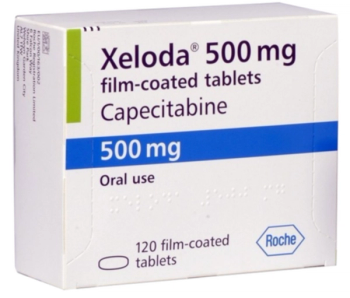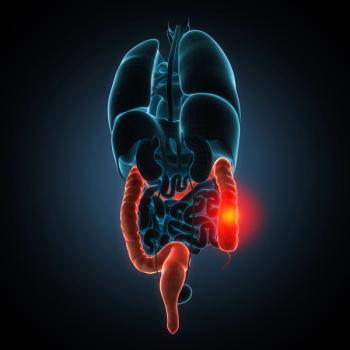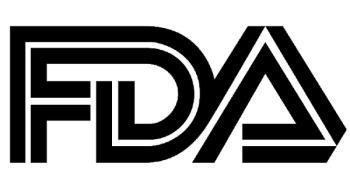
Andrew Barnell, MBA, CEO and co-founder of Geneoscopy, discusses his meeting at the White House on President Biden’s Cancer Moonshot initiative.

Andrew Barnell, MBA, CEO and co-founder of Geneoscopy, discusses his meeting at the White House on President Biden’s Cancer Moonshot initiative.

Scientists found that inhibiting certain immune system receptors could treat colon cancer and other diseases of the gastrointestinal tract.

Gamma-delta T-cells undergo a biochemical change that leads them to spur the growth of tumors that previously restricted.

Delayed diagnosis in younger individuals and presentation of advanced disease highlights need for awareness.

The results showed a 38.1% confirmed objective response rate among HER2-positive patients who received tucatinib in combination with trastuzumab.

Analysis shows that the common infection may be a driver of the disease in adults younger than aged 50 years.

Screening participation increased over time, but the increase was smallest among individuals aged 50 to 54.

Nearly 63% of newly diagnosed patients have advanced colorectal cancer, which requires more aggressive treatment and reduces the associated 5-year survival rate.

Capecitabine (Xeloda) is indicated for adjuvant colon cancer, metastatic colorectal cancer, and metastatic breast cancer.

David DeRemer, PharmD, BCOP, FCCP, FHOPA, a past-president on the board of Hematology/Oncology Pharmacy Association (HOPA), discusses why a greater focus on colorectal cancer screening was important to highlight at the HOPA 2022 annual conference.

Bevacizumab-maly (Almysys; mAbxience) is the third biosimilar of bevacizumab (Avastin) approved in the United States.

Encorafenib in combination With anti-EGFR monoclonal antibody improves overall survival.

Ramucirumab (Cyramza; Eli Lilly) is FDA-approved for 5 unique cancer indications.

The CAR T-cell therapy CYAD-101 was being evaluated in combination with FOLFOX followed by pembrolizumab (Keytruda) in patients with unresectable metastatic colorectal cancer.

Culturally tailored patient navigation can improve underserved individuals’ health literacy, trust in the health care system, and use of cancer screening tools, study results show.

Christopher Mast, MD, vice president of clinical informatics at Epic, explains his outlook for the future in the field of oncology in light of the ongoing delays in cancer screenings rates.

Christopher Mast, MD, vice president of clinical informatics at Epic, explains the level to which cancer screening rates would need to rise to meet pre-pandemic rates.

Commonly used medications may influence responses to checkpoint inhibitors among patients with cancer.

The FDA initially approved regorafenib for chemorefractory metastatic colorectal cancer and unresectable gastrointestinal stromal tumor in 2012.

Study finds that 16.9% of stomach cancers, 11.9% of endometrial cancers, 11.0% of kidney cancers, 9.3% of colon cancers, 8.1% of esophageal cancers, 6.5% of female breast cancers, and 3.9% of urinary bladder cancers were associated with a low level of exercise.

Chemotherapy for colorectal cancer include 5-fluorouracil (5-FU), capecitabine (Xeloda), irinotecan (Camptosar), oxaliplatin (Eloxatin), and trifluridine and tipiracil (Lonsurf).

The majority of treatment-related adverse events (TRAEs) were grade 1-2 in severity, and no patients experienced dose-limiting toxicities during the 28 days following initial treatment.

The combination of cetuximab and encorafenib resulted in a median overall survival of 8.4 months, compared to 5.4 months in the control arm among patients with colorectal cancer.

Umeā University in Sweden finds a connection between the two, due to the intestinal micobiome.

The continued approval for this indication may be subject upon verification and description of clinical benefit in a confirmatory trial.